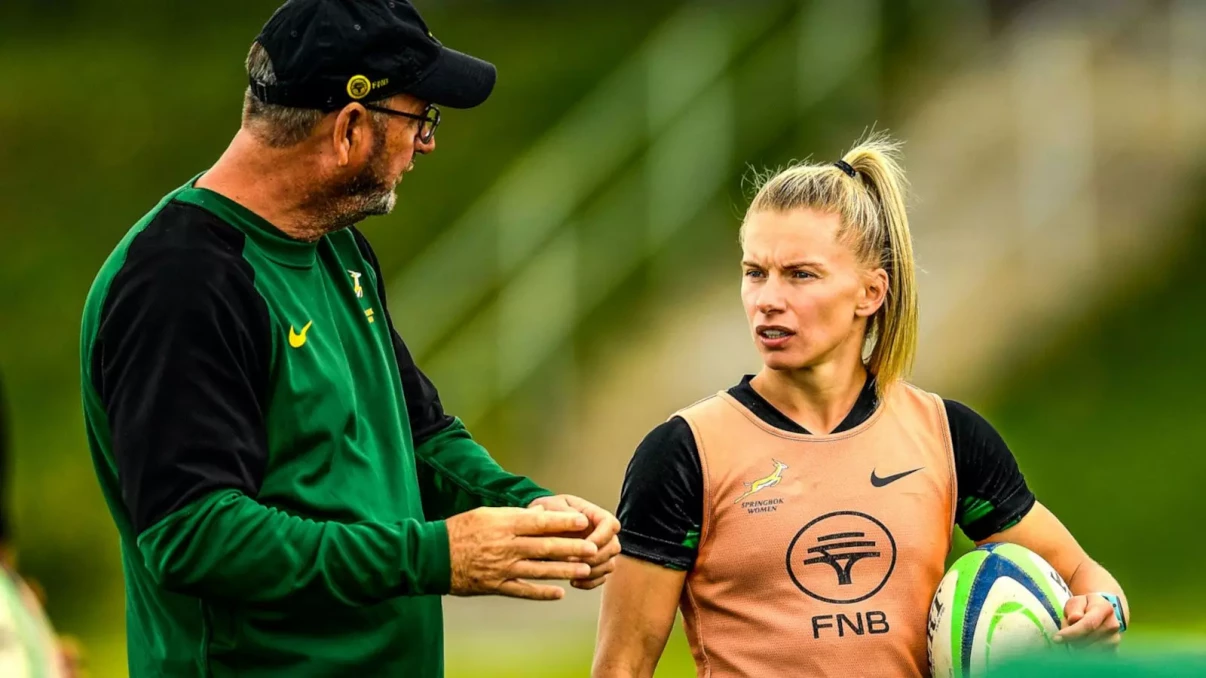When Swys de Bruin joined the Springbok Women's team, not many people knew what to expect.
He had been out of coaching for a while after stepping away from the men's game in 2019 due to burnout, and his return came in a way no one predicted - not back to Super Rugby or the Springboks, but into the world of women's rugby.
Less than a year later, the Bok Women are in the quarterfinals of the 2025 Women's Rugby World Cup and ranked in the top ten in the world for the first time since 2011. His impact, both on and off the field, has been nothing short of massive.
De Bruin brought with him years of experience, a sharp rugby brain, and a clear vision for how the team could improve. But what's made him really stand out is the way he's treated the players - not just as athletes, but as people.
He's spoken openly about how important it is to understand what each player has been through, and he's made it a priority to give every squad member a voice. That's not something you see from every coach, and it's one of the reasons why this team has come together the way it has.
He's also made some brave decisions. In the final pool game against France, De Bruin rested some of the stars to give other players their first chance at a World Cup appearance. Some people criticised that move, but he stuck to his guns.
"This is a World Cup, but people are more important," he said. That kind of thinking is rare in high-level sport, but it shows what kind of coach and person he is. He's not just chasing wins but building something much bigger.
On the field, the Springbok Women are playing smarter, more confident rugby. Their set-piece is solid, their attacking structure is much better, and they're making good decisions under pressure.
That's where De Bruin's rugby brain really comes into play. He's known for his tactical ideas and attacking play, and it's clear that the team is starting to reflect his style - organised, but with freedom to play.
But it's not just about tactics and results. De Bruin has helped change how people see women's rugby in South Africa. These players are now role models, with young girls across the country following their journey.
That kind of shift doesn't happen overnight, and it doesn't happen without the right person leading the way.
In the end, it's clear that De Bruin didn't take this job just to coach another team. He took it because he believed in the potential of the players, and in the idea that South African women's rugby could be something special.
And now, as they head into the quarterfinals, that belief is turning into something real.









